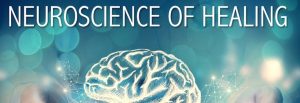It’s a painful double-whammy: a life of emotional misery topped up with chronic illness. Some personality types are just destined to suffer. However, a dramatic breakthrough in trauma research may offer the key to unlock this painful destiny.
Type D Personality describes those who have habitually negative feelings accompanied by social inhibition. This personality type has long been associated with much higher risks of chronic physical and mental illness, compared with the average population.
Painful emotions and lack of social connection cause chronic stress, which is accompanied by increased circulating stress hormones, such as cortisol, and raised blood pressure. Chronic stress increases your risk of heart disease and stroke, impairs your immune system, and can precipitate mental illness.
People with Type D personality are also more likely to live an unhealthy lifestyle, avoid health-sustaining activities and neglect their adherence to medication.
This personality type is usually the result of adverse experiences and emotional trauma early in life, affecting up to 30% of the population.
However, a breakthrough study showed that a single session of Havening Techniques – a novel psycho-sensory therapy – nearly abolished the signs of Type D personality and significantly reduced cortisol and blood pressure. A randomly matched control group of subjects showed no change in their scores.
Kirsty Hodgson and Debbie Clayton from the Metropolitan University of Cardiff teamed up with therapists across England to identify one hundred twenty-five clients with Type D personality and test the outcomes of Havening. Their study is published in the Journal of Psychophysiology.
Remarkably, the early response measured at 24 hours became even more pronounced one-month after treatment. Prior to the treatment, 59 out of 68 participants were classified as Type D personality. At one month, only 9 participants met the score for this diagnosis.
The implications of this study are profound. It overturns the dogma that personality types are stable over a lifetime and cannot be modified. The blood pressure response at one month after treatment was about as big as doctors would expect from starting drug treatment for hypertension.
The persistent reduction in blood pressure and cortisol levels shows that chronic stress is diminished and long-term health risks are reduced – from just one hour of simple and gentle treatment.
What are Havening Techniques?
Havening, which means ‘to bring someone to a place of safety’, is a novel form of guided self-healing built on a detailed understanding of the molecular biology of trauma.
Dr Ronald Ruden, a physician and PhD researcher in the USA, has doggedly pursued the question of what happens in the brain during traumatic experiences and how that ‘hard-wired’ stress response might be reversed.
Pulling together many strands of research, he showed that traumatic memories are encoded in a part of the brain called the Amygdala, when new receptors are inserted in nerve junctions, linking together the sensory, emotional, physical and stress components of the trauma.
In a leap of intuition, he guessed that trauma might be reversed if the nerve circuits holding the trauma were first activated and then feelings of deep safety and connection were created in the interaction between client and practitioner.
In practice, the client is asked to briefly recall the trauma and notice the feelings of distress, then soothing touch is applied to the upper arms, palms and the face. These parts of the body have specialised nerves that register soothing touch and within half a minute the client’s brain is flooded with low-frequency brain waves, called Delta Waves.
The Delta waves cause a slow oscillation of calcium ion concentration inside the nerve cells encoding the trauma, which activates enzymes that rapidly remove receptors from the nerve junction. This deletes the encoding of the trauma so that the emotional and stress responses are abolished.
Practitioners report that a severely traumatic memory can be completely erased in about twenty minutes, an astonishing experience for the client.
While there are many anecdotal reports of the remarkable potential of Havening Techniques, this is the first rigorous scientific study to confirm the impact on both clinic outcomes and measures of chronic stress.
To learn more, see Havening.org
Author Robin Youngson is an award-winning doctor, trauma therapist, and life coach who helps people heal their past and attain their greatest potential. A Certified Havening Techniques Practitioner and Trainer, and author of ‘Time to Heal’, he shares the astonishing new science of self-healing at neuroscienceofhealing.com


Thank you Robin for supporting the de-mystification of our research paper for practitioners, rather than scientists ,Kirsty Hodgson, the lead researcher has undertaken further analysis of the evidence in support of Havening relating to the study (…..so to be continued !) Best wishes, Louise
Great article. Many thanks. I’ve trained in many styles of psychotherapy, but the rapid emotional changes I’ve seen with Havening still amaze me! It’s worth having a go…